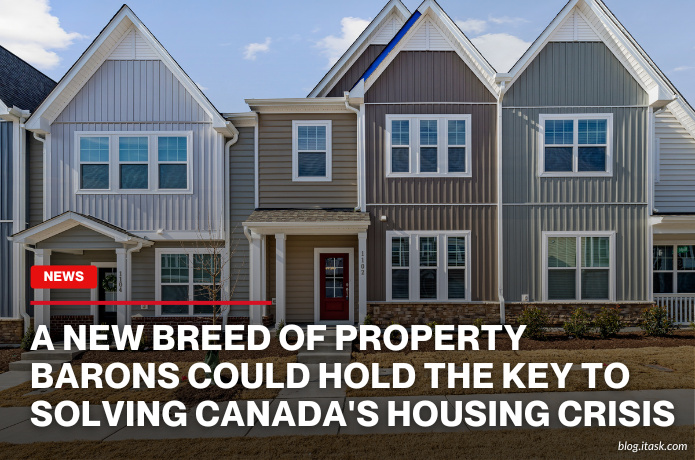A new breed of property barons could hold the key to solving Canada's housing crisis
A new breed of property barons could hold the key to solving Canada's housing crisis

Canada’s housing crisis has reached critical levels, with many Canadians struggling to find affordable housing. A new generation of property developers, or "property barons," may hold the key to addressing this issue. Unlike traditional developers focused solely on profit, these innovators aim to balance business interests with creating affordable and sustainable housing solutions. This approach comes as the country faces a severe housing supply shortage and skyrocketing rental prices.
The roots of Canada’s housing crisis can be traced to policy shifts over the decades. In the 1990s, the federal government significantly reduced funding for social housing, relying instead on the private sector to meet housing needs. This led to a commodification of housing, where homes became investment assets rather than places to live. As a result, Canada has some of the lowest levels of affordable housing stock among developed nations.
The "property barons" stepping into the housing sector are bringing new strategies to the table. Many of them are utilizing innovative construction techniques, such as modular or prefabricated housing, to cut costs and reduce timelines. Others are focused on developing mixed-income communities, where affordable units are integrated with market-rate housing. These efforts aim to make housing accessible for people from various income levels without creating stigma.
However, the challenges remain daunting. Canada needs to construct approximately 3.5 million additional homes by 2031 to meet population growth and demand. The construction industry faces significant labor shortages, compounded by an aging workforce. Expanding the sector’s capacity is critical, including recruiting more skilled tradespeople and leveraging immigration programs to bring in specialized workers.
Governments at all levels are beginning to collaborate with private developers to tackle the crisis. Recent initiatives include financial incentives for building rental housing, revising zoning laws to allow higher-density developments, and implementing programs to encourage the use of underutilized land. These measures aim to streamline development processes and attract more investment into affordable housing.
While these efforts represent a promising start, experts emphasize that addressing the housing crisis will require sustained collaboration between governments, developers, and communities. The emergence of socially conscious property developers signals a shift in how Canada might build its way out of the housing crisis, but success will depend on overcoming systemic challenges in financing, labor, and policy alignment.
This new breed of property barons offers hope for a future where every Canadian can have a place to call home. Their innovative approaches, combined with supportive policies, could finally turn the tide on one of the nation’s most pressing challenges.
